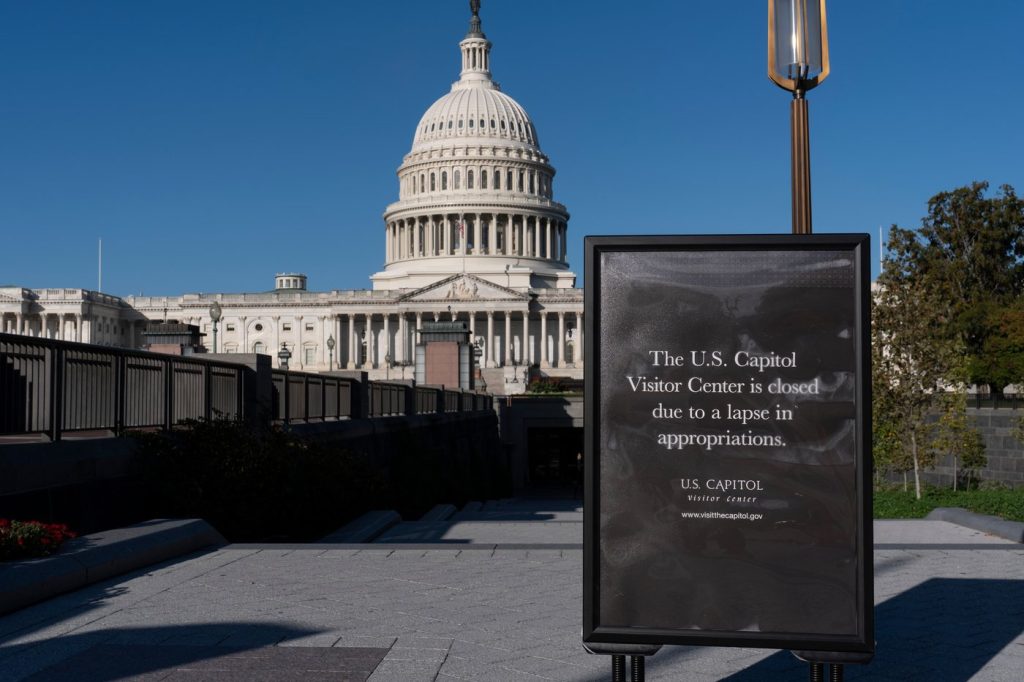Senate Democrats are set to reject a stopgap spending bill for the tenth time, as they remain firm in their demands for Congress to address health care benefits. The ongoing votes on funding have highlighted the deepening stalemate in Congress, where the Senate has prioritized this issue amid a government shutdown that has left hundreds of thousands of federal workers furloughed, with even more facing uncertain paychecks.
Senate Majority Leader John Thune from South Dakota has expressed concerns about the impact of the shutdown on American families, noting the increase in flight delays as a result of the funding lapse. Thune has continually pressured Democrats to support the stopgap funding bill, arguing that each day of the shutdown has detrimental effects on the economy and on people's livelihoods. Despite ongoing bipartisan discussions about potential compromises regarding health care, no substantial progress has emerged to resolve the standoff.
Democrats have made it clear that they will not support any spending bill until they secure guarantees for extending subsidies for health plans available under the Affordable Care Act (ACA). These subsidies, crucial for millions of Americans who purchase their own health insurance, are facing potential expiration as premium prices are expected to rise. With a looming deadline of November 1 for many states, Democrats believe there is increasing pressure on Republicans to engage in serious negotiations to prevent significant price hikes that could lead to many Americans losing their health coverage.
Senate Democratic leader Chuck Schumer pointed out that without action, many individuals—including small business owners, farmers, and contractors—will be forced to either abandon their current plans or forgo insurance altogether. On the other hand, as discussions continue, Thune is attempting to shift the focus to appropriations bills that would facilitate the funding of essential government services, potentially leading to troop salary payments.
The urgency of resolving issues surrounding the Affordable Care Act is emphasized by Senator Patty Murray, who has stated that families are becoming increasingly anxious about skyrocketing premiums, some of which are reported to be doubling. This fear of significant price increases could further erode the insurance pool and increase prices overall for medical insurance, affecting even those not currently considering leaving their plans.
While some Republicans acknowledge the need for addressing the expiration of health care tax credits, there is no consensus within the party. House Speaker Mike Johnson referred to these subsidies as a “boondoggle,” suggesting that they contribute to rising insurance costs by increasing the amount paid to insurance companies. President Donald Trump has indicated a desire for a resolution regarding health care but has not actively engaged in the negotiations, and Thune insists that Democrats must first vote to reopen the government before discussing health care reforms.
Negotiations surrounding significant changes to health care will likely extend beyond a few weeks, further complicating the current situation. Meanwhile, Senate Republicans are moving to schedule a vote for a bill that funds the Department of Defense and other government sectors, redirecting focus to spending bills that could gain bipartisan support.
This approach highlights the ongoing struggle between both parties in the Senate. Democrats are unwavering in their insistence on health care assurances while Republicans seek to advance traditional funding methods. While these votes won’t resolve the shutdown immediately, they indicate potential areas for bipartisan agreement amid the turmoil of ongoing governmental impasses.











